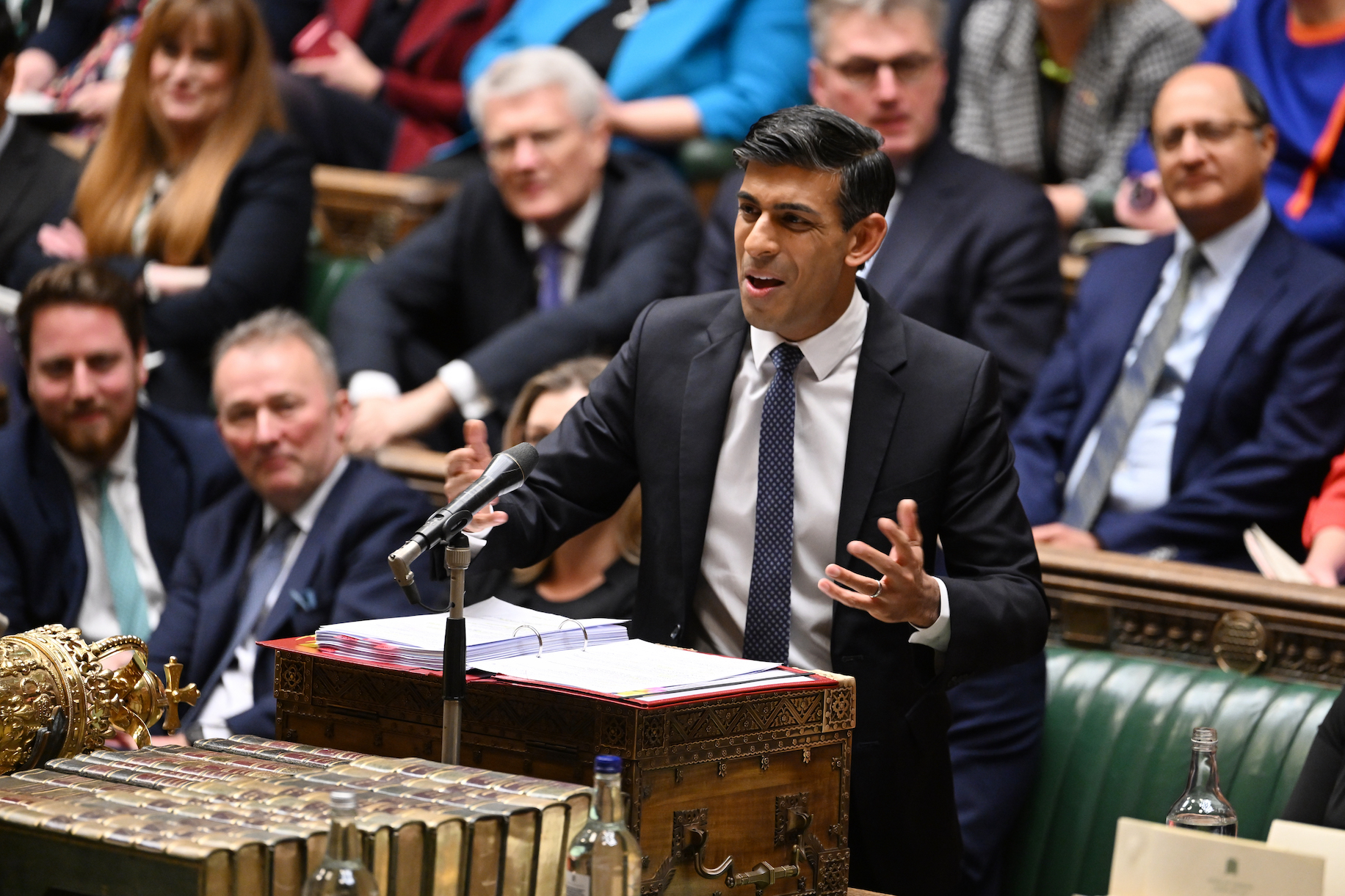Rishi Sunak began this year with a round of pledge-making in a deliberate effort to contour the terrain on which the next election will be fought.
Promising to halve inflation, grow the economy, reduce debt, cut NHS waiting lists and “stop the boats”, the PM claimed he was pronouncing the “people’s priorities”. But the opportunism behind the oath-swearing was obvious: the PM was laying down some classic Conservative calling cards in a bid to challenge the still unproven Starmerite electoral machine.
The pledges are also the essential Sunakian pitch. By the time of the next election, the PM will want to point to his January promises, pronounce success and persuade voters that such a record delivery vindicates the Conservatives’ case for a fifth term. That is the nature of the PM’s bullet-point theory of politics.
In this way, “halving inflation” — the first of Sunak’s pledges — is deliberately politically insensitive with many economists suggesting the PM has set a manifestly modest target. Economists know the rate of price rises will eventually fall without any shift in the Treasury’s fiscal levers; still, in taking credit for a cooler economy ahead of time in January, Sunak eyed an electoral windfall.


However, with the news today that UK inflation stubbornly stayed at 8.7% in May, Sunak’s task has gotten rather a lot harder. Price rises continue to defy forecasts with core inflation, a measure which excludes volatile elements like food and energy prices, actually increasing to 7.1 per cent in May, up from 6.8 per cent in April.
May is therefore another month where the rate of UK price rises has come in dramatically higher than anticipated. Sunak knows that on inflation he has special incentives to deliver — a consequence of his consummate New Year oath-swearing. But today’s figures beg the question: is the prime minister failing on his most achievable pledge for government?
Right now, Labour’s approach is to try to draw a link between price rises and the rising cost of mortgages following the fallout of Liz Truss’ “mini” Budget catastrophe.
“Mortgage products are being withdrawn and replaced by mortgages with much higher interest rates”, shadow chancellor Rachel Reeves told the House of Commons yesterday. “This is a consequence of the Conservative mini-budget last year and 13 years of economic failure with inflation higher here than in similar countries”.
Naturally, chancellor Jeremy Hunt promised today to squeeze “every last drop of high inflation out of the economy”. But the implications of even tighter fiscal policy — matched by rising interest rates — spells disaster for No 10’s political prospects.
With inflation yet to show signs of falling, and with millions of people across Britain struggling with the cost of living and facing soaring mortgage payments, the Bank of England is expected to crank the base rate higher once more. It could take interest rates to a level not seen in more than two decades.
So even if Sunak hits his modest target of cutting inflation by half — interest rates will have to be higher than initially expected in order to do so. In the end, interest rate hikes and a barrage of attacks over a “Tory mortgage penalty” will vastly eclipse any politically windfall Sunak gets from eventually hitting his arbitrary inflation target.
It means that while the news on price rises may get a little better through the summer, Sunak’s political prospects will not. The PM looks set to pay a high price for his inflation-heavy electioneering.

